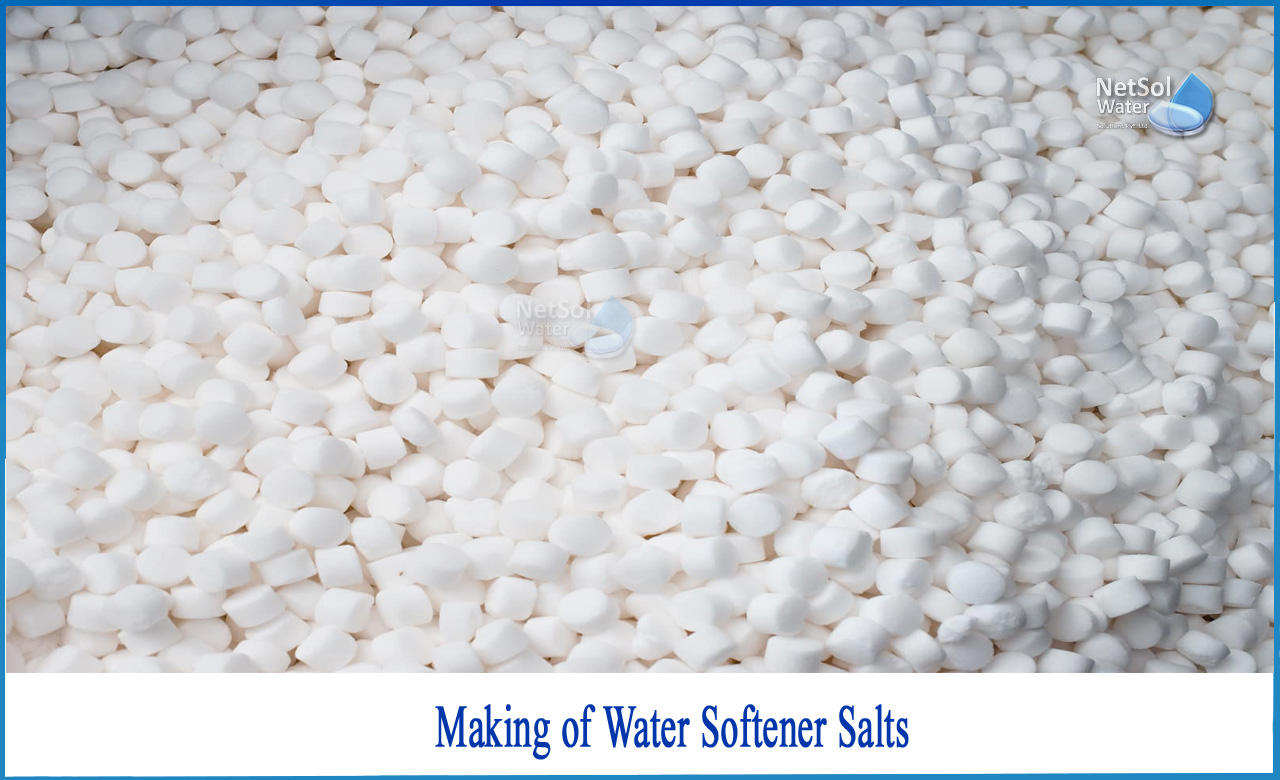How to make of Water Softener Salt?
-Salt is a non-toxic, low-cost option. It also enables for an ion exchange without altering the softened water's flavour.
-Salt is required in water softeners because it aids in the cleaning of the resin beads.
To draw out the hard minerals and flush them down the drain, we add salt pellets to the resin tank. Salt is thus required by water softeners. It's utilized to get rid of hardness and accelerate ion exchange. The amount of salt required to soften water in your home is determined by the number of people living there. It also relies on the water's hardness levels.
Sodium chloride is the salt used in water softeners (NaCl). Potassium chloride might also be used (KCl). A water softener's salt might be in the form of blocks, crystals, cubes, rock, or pellets. Some of them including their processing are explained below as-
1: Crystals of salt
When a combination of salt, water, and brine is exposed to the wind, evaporation causes salt crystals to develop. It contains roughly 99.6% sodium chloride and is better suited to smaller families that consume less water. It's also suitable for use in a two-part water softening system.
2: Sea salt from the sun
Solar sea salt is formed by the evaporation of saltwater. Solar salt is accessible in a pure form that contains 99.5 percent salt and very few additional components, if any. It's also a lot more soluble than other salts.
3: Rock salt
Rock salt has an uneven form and is less expensive than other salts. However, because it contains some calcium sulphate, it is not as pure. It also takes longer to dissolve in water than pure varieties of salt. As a result, it leaves a deposit in the brine tank of the water softener, necessitating periodic cleaning.
4: Pellets of evaporated salt
By refining salt crystals into sodium chloride, you may make evaporated salt pellets. These salt pellets are the ideal sort of salt to use in water softeners since they contain 100 percent pure salt. They disintegrate quickly and leave no trace. Although evaporated salt pellets are slightly more costly than other forms of salt, they perform better.
5: Chlorides of potassium
Those who do not want extra sodium in their water or are on a low-salt diet may benefit from potassium chloride. Potassium softens the water as well, resulting in softened water with no salinity.
Understanding the different types of salt available for water softeners will aid in determining the purity levels of the salt.
In certain circumstances, a specific amount of material is included in addition to the salt. These additional elements in salt are used to determine purity. If the salt is pure, it will include less insoluble materials such as soil or rock particles. Pure salt will last longer and will not leave any residue in the brine tank of a water softener. Pure salt can also help prevent clogging of pipes and water softener systems by reducing the possibility of salt bridges.
Another factor to consider is the water softener's maintenance requirements. The sort of salt you use will have an immediate effect on the system. Impurities in the salt, such as boulders or soil, will accumulate in the unit, causing it to malfunction. These deposits can accumulate over time, and you'll need to rinse them out of the water softener. The deposits that collect and must be rinsed out can wear down the water softener faster if it is used frequently.
Additionally, impure salt increases the likelihood of salt bridges!
In the brine tank, salt solidifies and forms clusters or a firm crust, forming a salt bridge. Salt is stopped from entering the water softener when the crust grows up.
Technical assistance and guidance
With so many different varieties of water softener salts in the market, picking the perfect one may be challenging.
You'll need to consider several factors, including the quality of salt, the amount of salt you'll need, the hardness of your water, and your budget. While the best sort of salt is likely to be more expensive, it may also have the highest purity level. As a result, it makes sense to invest in the best, since it will pay you in the long run.
Netsol Water collaborates with a wide range of international organizations to tackle complicated Water Softener problems by strategically integrating modern treatment technology with practical solutions. We can also provide a good framework of water and wastewater treatment plants, including Water Softeners.
Netsol Water is Greater Noida-based leading water & wastewater treatment plant manufacturer. We are industry's most demanding company based on client review and work quality. We are known as best commercial RO plant manufacturers, industrial RO plant manufacturer, sewage treatment plant manufacturer, Water Softener Plant Manufacturers and effluent treatment plant manufacturers. Apart from this 24x7 customer support is our USP. Call on +91-9650608473, or write us at enquiry@netsolwater.com for any support, inquiry or product-purchase related query.



